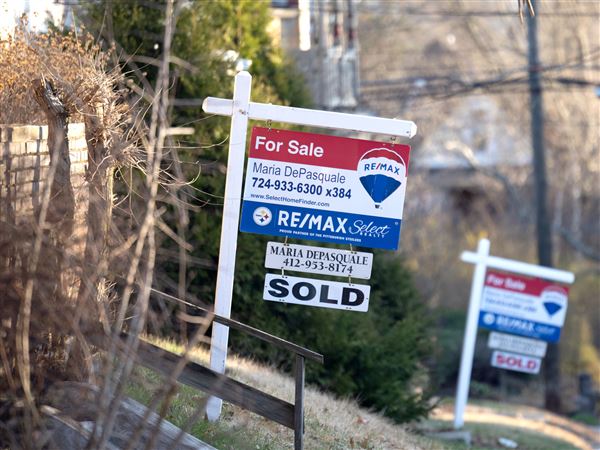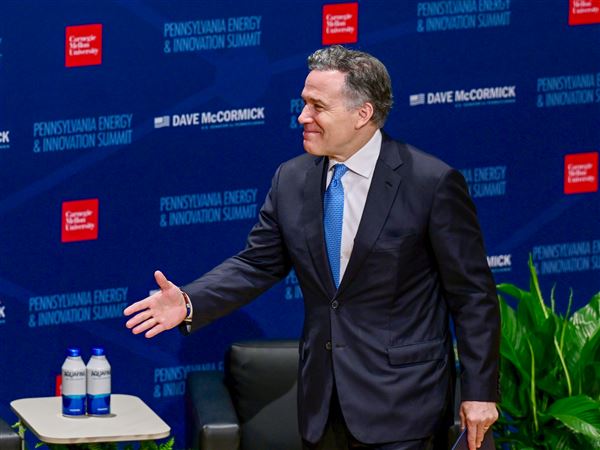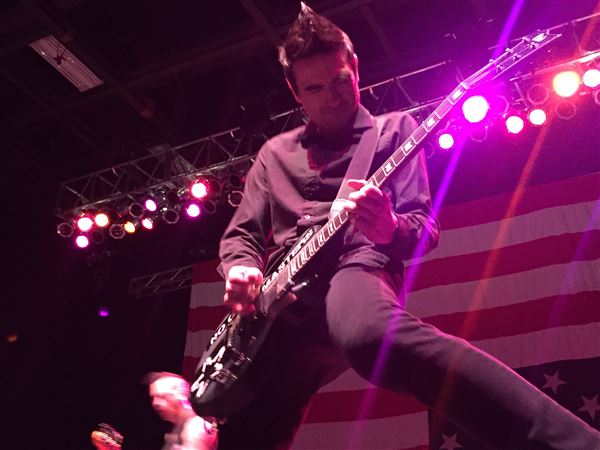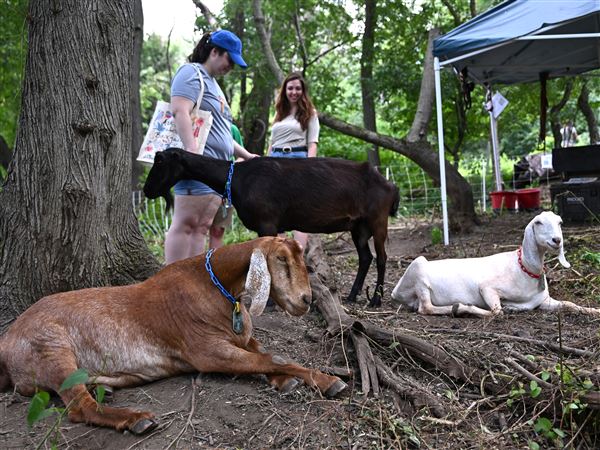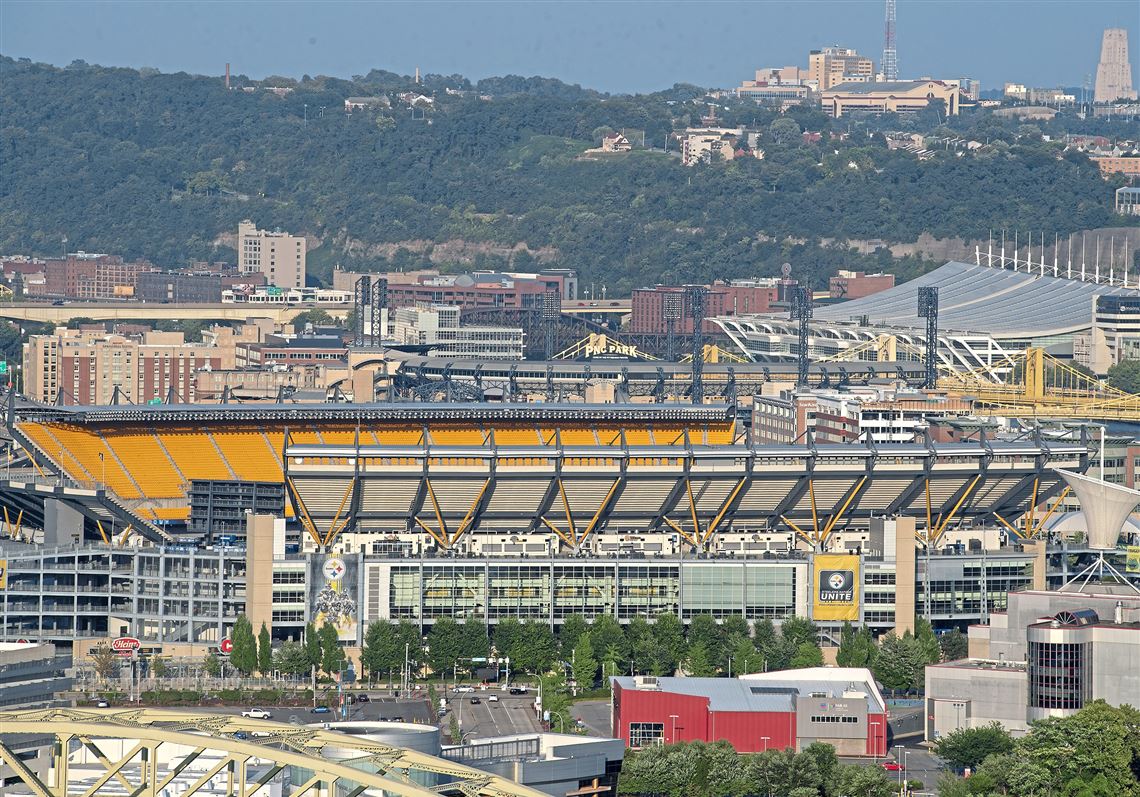Taxpayers could end up footing the bill for some improvements to PNC Park, Heinz Field, PPG Paints Arena, and the David L. Lawrence Convention Center under a proposal before the Allegheny Regional Asset District.
The Pittsburgh-Allegheny County Sports & Exhibition Authority is asking the RAD board to earmark $1.16 million in sales tax revenue next year to help with capital repairs and improvements to the four venues, all owned by the SEA.
Mary Conturo, SEA executive director, said she is hoping the Regional Asset District board will see fit to award the money on an ongoing basis to fund what the authority is calling a “multi-facility reserve fund.”
Any money budgeted by RAD for that purpose would be in addition to the $13.4 million annually that the Regional Asset District already allocates to pay off the debt related to construction of Heinz Field and PNC Park.
The public funding of the two stadiums — usually referred to as Plan B — proved to be very controversial, with some Pittsburghers still rankled by the decision.
Heinz Field cost about $261 million to build, while PNC Park cost $271 million and PPG Paints cost about $331 million. The convention center price tag hit $373 million.
Ms. Conturo said the multi-facility reserve fund is needed as the venues age. PNC Park and Heinz Field opened in 2001, the convention center in 2003, and the arena in 2010.
“The facilities are getting older and we think it’s prudent to create this supplemental reserve fund to help maintain them in good faith,” she said.
The new fund would supplement individual capital reserve funds put in place for each of the venues.
The Heinz Field and PNC Park reserve funds are financed through ticket surcharges, while the arena fund is done through rent payments. The SEA puts $350,000 a year plus money from any one-time sources like litigation settlements into the convention center fund.
Under the leases for the sports facilities, annual funding requirements to the individual reserve funds range from $500,000 to $650,000. If the normal funding sources don’t hit that level, the SEA would have to make up the difference.
SEA officials have squabbled with the Pirates and the Steelers in recent years over proposed improvements and whether those should be paid for out of the reserve funds or by the teams themselves.
In lobbying earlier this year for a cut of the money from sports betting to help pay for improvements to PNC Park, Pirates President Frank Coonelly told the state gaming control board that the ballpark’s capital needs are “significant.”
He maintained at the time that the PNC Park reserve fund is not sufficient to meet the growing capital improvement and repair needs, and that the SEA has not met its obligations under its lease with the team, a claim the authority denied.
The Steelers also have clashed with the SEA over who will pay for proposed Heinz Field improvements, including a $25 million expansion of the Great Hall.
In a 2014 deal to add 3,000 seats to the south end zone at the stadium, the team agreed to add another $1 to an existing $3 ticket surcharge to help finance future capital repairs.
At the time, the SEA vowed to use its “best efforts” to persuade the RAD board to allocate at least $800,000 a year for the creation of the type of multi-facility reserve fund it now is seeking.
If that fund is not created, the Steelers have the option next year of dropping the $1 added to the surcharge in the 2014 deal. The extra $1 generates about $1.1 million a year, Ms. Conturo said.
She said the football team has not indicated what it plans to do. Steelers officials could not be reached for comment.
Asked if the RAD request was an attempt to rectify shortages in the various funds, Ms. Conturo stated, “We’re meeting our obligations now but the facilities are getting older and you would expect the capital repair needs to increase with the age of the facilities. We think it is prudent to plan for the future.”
The SEA is proposing that the Regional Asset District board use funds that had been previously earmarked to pay off debt for improvements made at various points to the former Civic Arena, which was demolished in 2012.
The final payment, $685,000, was made in July. Payments at one time were as high as $3.2 million annually.
“These four world-class, regional assets were visited by 5 million people last year. And their success is not just about the structures and local attendance but also about their support of tourism, about adjacent economic development and creation of job opportunities,” Ms. Conturo said in defending the request.
Dan Griffin, RAD board chairman, said he is generally supportive of the Sports & Exhibition Authority request as long as the sports teams continue to contribute to the individual reserve funds to pay for improvements and repairs at their respective venues.
“I can’t say I would give the full amount but I would give something as long as it doesn’t interfere with normal operations,” he said.
He believes the teams and the sports venues have played a role in the growth of county sales tax revenue from about $43 million to nearly $100 million since he joined the RAD board in 1998.
Mr. Griffin couldn’t predict how other board members would vote but added that he hasn’t heard “anyone say they were vehemently opposed to the concept” after Ms. Conturo presented it at a public hearing last week.
The RAD board funds various civic, cultural, and entertainment attractions each year through a 1 percent Allegheny County sales tax. The 1 percent was added to the county’s 6 percent sales tax in 1994, with half of the increase going to fund RAD and the other half funneled to the county and its municipalities.
This year the Regional Asset District budget is about $100 million. Last year, sales tax revenues totaled about $97.8 million.
RAD has received $111.7 million in requests from 117 applicants for next year.
Richard Hudic, RAD executive director, said revenues so far this year are running slightly higher than last year. There should be room in the budget to accommodate the SEA request if that’s what the board decides to do, he said.
The RAD board will release a preliminary budget at the end of September. It is expected to vote on a final budget Nov. 28.
Mark Belko: mbelko@post-gazette.com or 412-263-1262.
First Published: August 29, 2018, 11:00 a.m.


